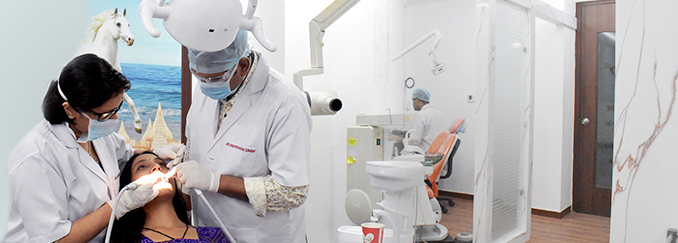Oral Surgery
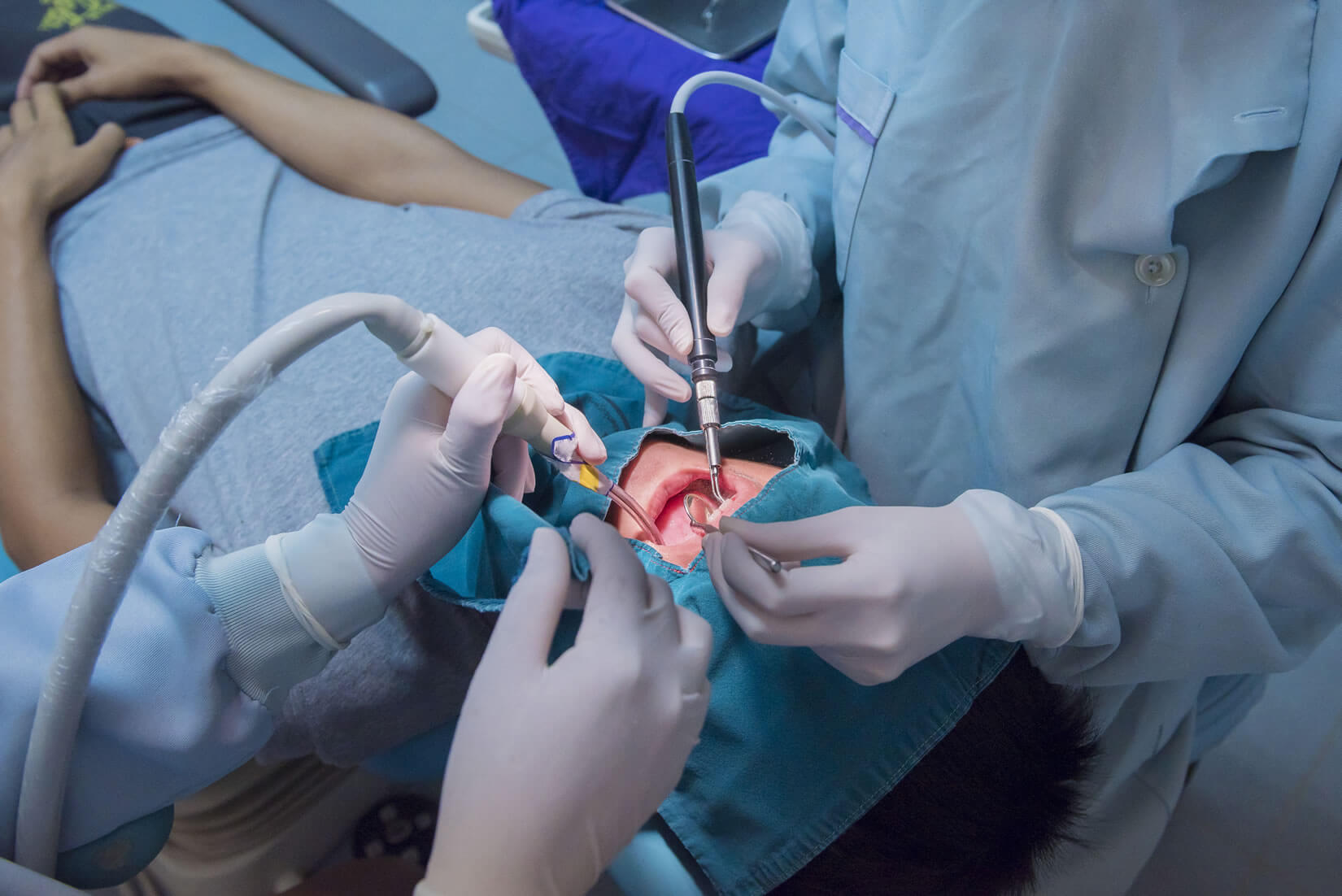
What is Oral Surgery?
Oral Surgery refers to surgical procedures performed on your teeth, jaw, and other oral structure. It includes gum, graft, and jaw surgeries. Oral Surgery is usually performed by oral and maxillofacial surgeons.
What are the Different Types of Oral Surgery Procedures?
Oral Surgery is performed on your teeth, gum, and surrounding oral and facial structure.
Your Dentist may recommend oral Surgery for many reasons:
- Implants
- Impacted teeth.
- Dental bone grafts
- Infections of the mouth and jaw
- Tooth extraction due to extensive decay/injury to the tooth
- Injuries to face and jaws (accidents or mishaps)
- Cysts and tumours of the jaw
- Temporomandibular joint disorders (TMD).
- Maxillary sinus diseases
- Diseases of bones such as osteomyelitis/osteoradionecrosis
- Sleep apnea.
- Oral cancer.
- Treatment of salivary gland diseases/disorders
- Reconstructive surgery
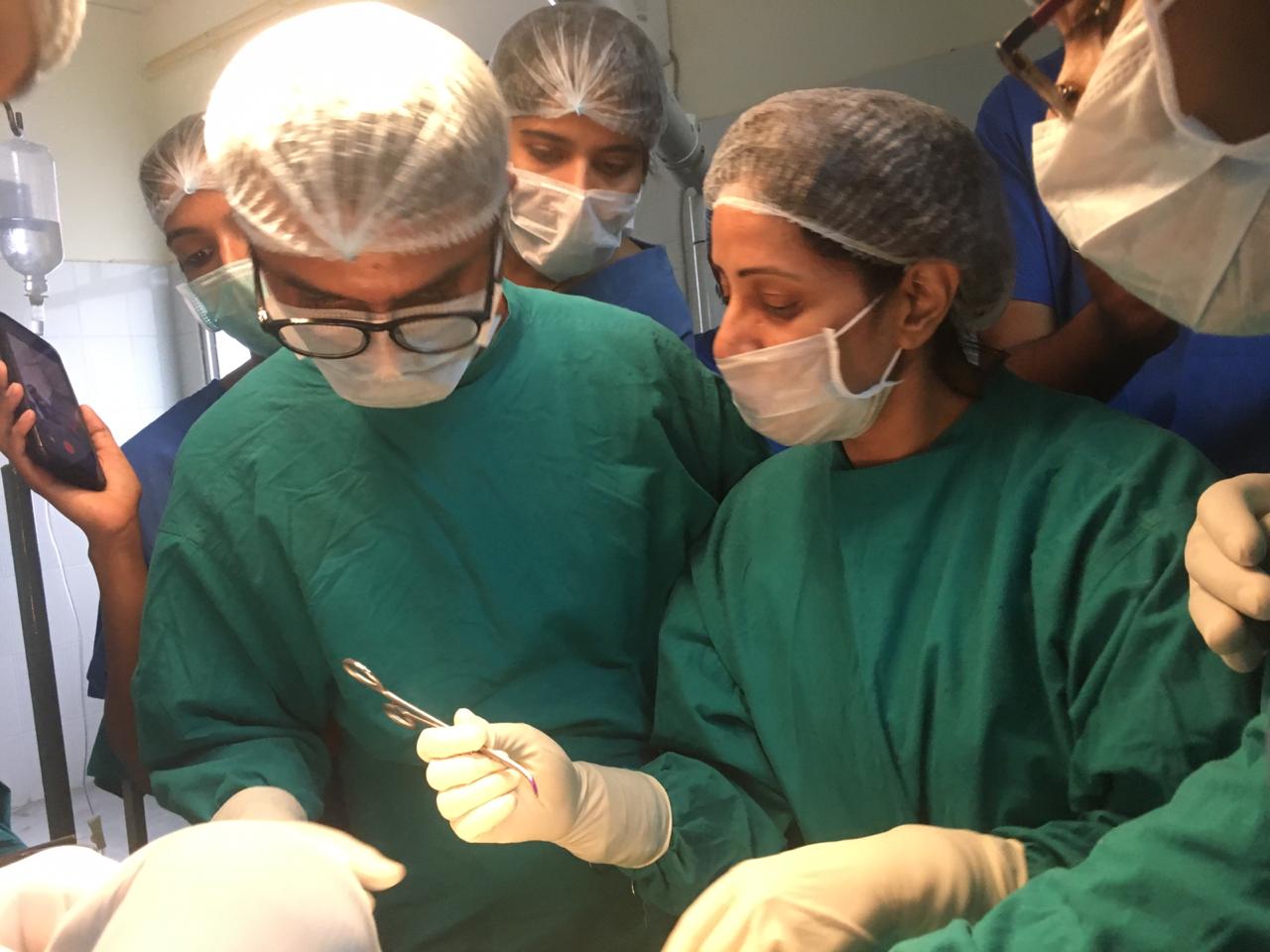
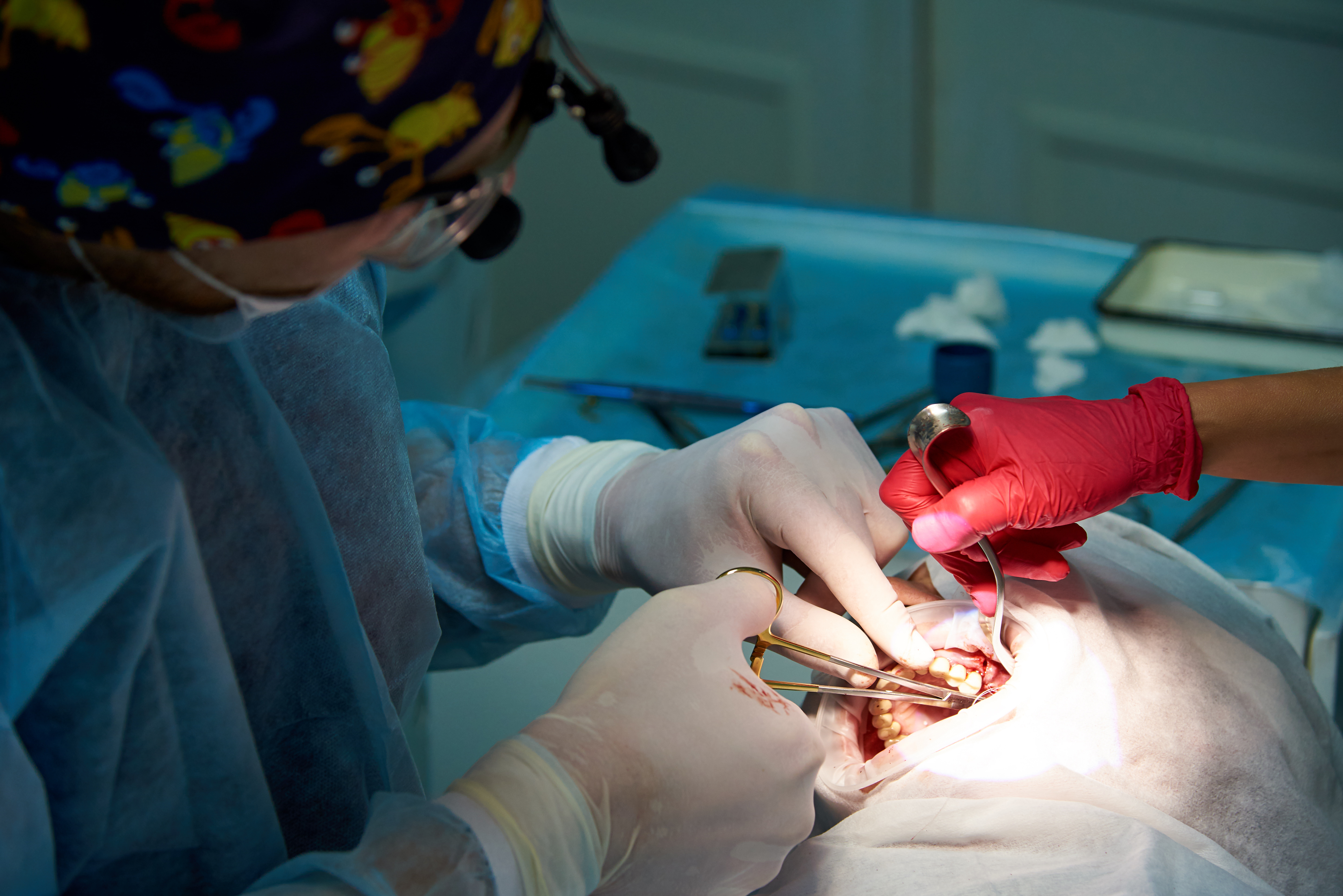
Different types of Oral Surgery?
There are several types of Oral Surgery performed.
- Tooth Extraction
The most common type of Surgery is tooth Extraction (Tooth removal). Tooth extraction is a procedure in which a tooth or a tooth root is completely removed from its socket. Tooth Extraction is performed for many reasons, but most commonly, is to remove a tooth that has become unrestorable through tooth decay, periodontal disease, and dental trauma. Many dental practitioners prefer to save natural teeth whenever possible. If your tooth has been badly damaged, then tooth removal is necessary for you. Most standard dentists recommend tooth extraction because it reduces the risk of infection caused by tooth decay, bone loss, and other problems.
- Impacted teeth
Some teeth are called impacted when they do not erupt into their normal position in the mouth. In such a case they need to be removed. Since removing these require more expertise than a general dentist; this care is undertaken by an Oral Surgeon by the method of minor oral surgical procedure.
- Implants
Implants are placed in the jaw bone in the region of missing teeth. They are placed by a minor oral surgical procedure, which is conducted by an Oral Surgeon.
- Infections of the mouth & jaw
Infection of the mouth and jaw can occur for several reasons. Irrespective of that, it not only requires medicinal treatment but may require surgical exploration too. In both cases, it is taken care of by an Oral Surgeon.
- Dental Bone Grafts
There are several ways in which dental bone grafting can be done. A dentist or an Oral Surgeon makes an incision in the gums to access the jaw bones. The graft is then inserted into this exposed jaw bone. The bone graft is usually done, when someone has lost his/her tooth and it needs to be replaced; but the bone available in the jaw to sustain that artificial tooth is less.
- Injuries to the face and jaw
The maxillofacial region (face & jaws) may sustain injuries due to road traffic accidents, interpersonal violence, falls, etc. In case the face and jaw bone are injured and fractured, they can be fixed by an Oral Surgeon under general and local anesthesia.
- Cysts and tumors of the jaw
Jawbones tend to endure minor/major cysts or benign/malignant tumors. These can easily be treated by an Oral surgeon under general and local anesthesia depending on the size of the lesion
- Temporomandibular joint (TMJ) disorders
Our TMJ undergoes many stresses & strains due to chewing, old age, arthritis, trauma, stress, etc. This kind of disorder can be treated with medicines, arthrocentesis of these joints (joint lavage), or some major surgeries. These disorders are handled by Oral Surgeon very well.
- Maxillary sinus disorders
The maxillary sinus receives the brunt from infected upper teeth of the mouth, nose, or any other defect in the palate (roof of the mouth). These diseases can be eradicated by an expert Oral Surgeon.
- Diseases of bone
Some diseases of bone, such as osteomyelitis/osteoradionecrosis may happen due to infections, radiotherapy of jaws, etc. They curetted and cleaned by an Oral Surgeon.
- Corrective jaw surgery
Jaw surgery is recommended if you have a jaw dimension issue, It corrects the irregularities of the jaw bones and teeth to improve the way they work and look. This is also called orthognathic Surgery.
- Cleft lip and palate repair
Cleft lip and palate repair is a major surgery that is usually done for babies when they baby is 6 to 12 months old. It is done when babies are born with cleft defects in their lips and/or palate (roof of the mouth). These defects are closed by the Oral surgeons, and they work as a team with the plastic surgeon and speech therapist.
- Sleep apnea surgery
If you have Obstructive Sleep Apnea (OSA), your airways are closed up while you sleep. This procedure restores the airflow to make your breathing easier. After the apnea surgery, many people sleep better and comfortably at night when they wake up feeling more rested.
- Salivary gland diseases/disorders
Some patients may suffer from salivary gland disorders such as xerostomia (dryness of the mouth), infection in the salivary gland, stones in glands, etc. they can be taken care of by Oral Surgical procedures.
- Reconstructive surgery
Extensive loss of jaw bone causes difficulty in chewing and facial esthetics. This kind of loss can be reconstructed with grafts harvested from other parts of the body and fixed into the defect area; which is surgically undertaken by an Oral Surgeon
What Precautions should be taken after Oral Surgery?
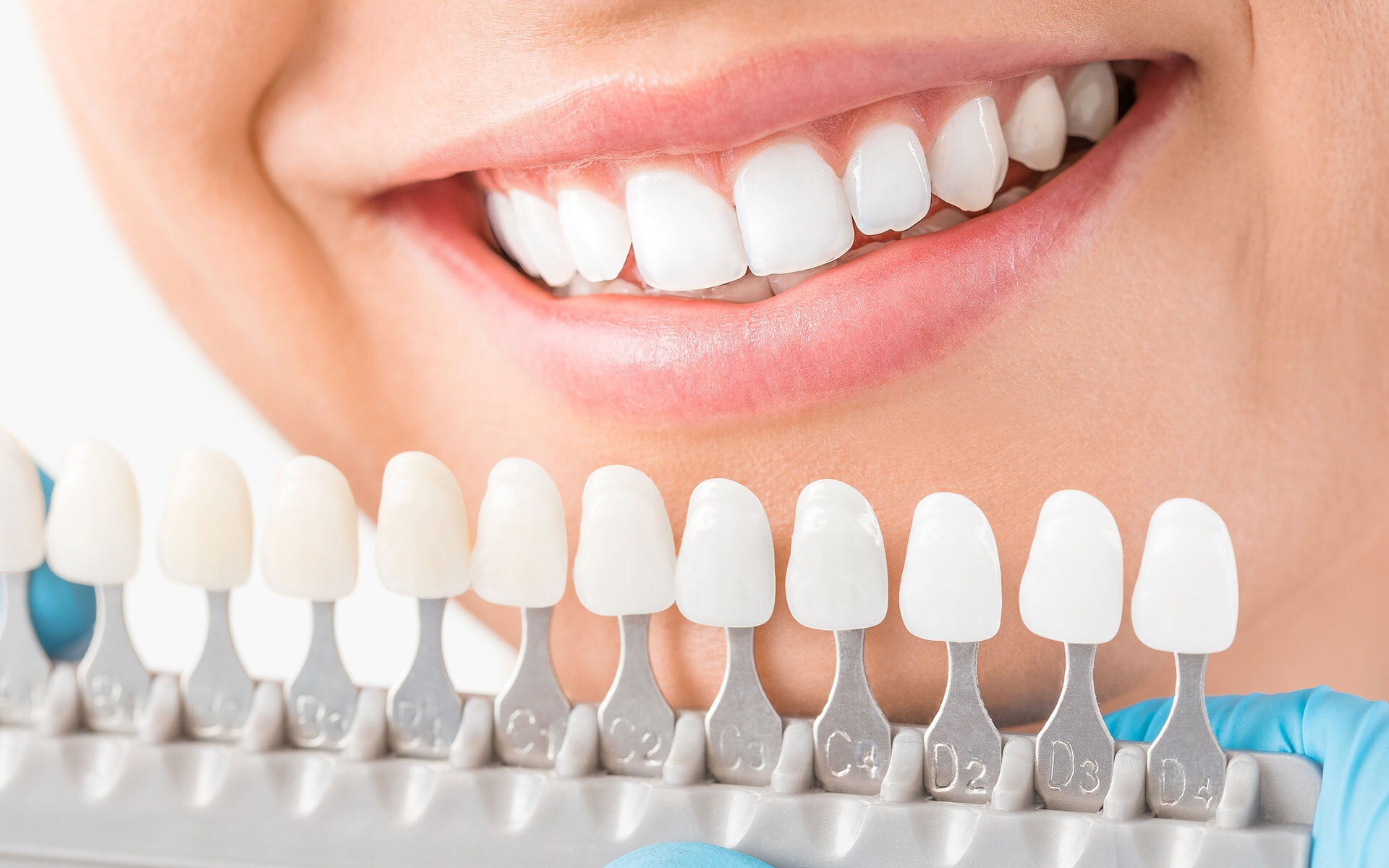
Your dentist will advise or suggest specific safety measures to take. Here are a few standard precautions.
- Don't eat hard and crunchy foods.
- Maintain a Clean Mouth
- Don't Exert Yourself
- Rest on the day of your oral Surgery.
- Take Your Meds as Instructed.
- Don't Smoke for 24 Hours.
How long does Oral Surgery take?
The Surgery depends on several factors, depending on what oral Surgery you are having. Minor Oral Surgical procedures may take 1-3 hours; whereas major may take longer time.
If you wish to undergo surgical procedures with minimal complications and better results, you can contact My Dental Care the best dental hospital in Jaipur.
